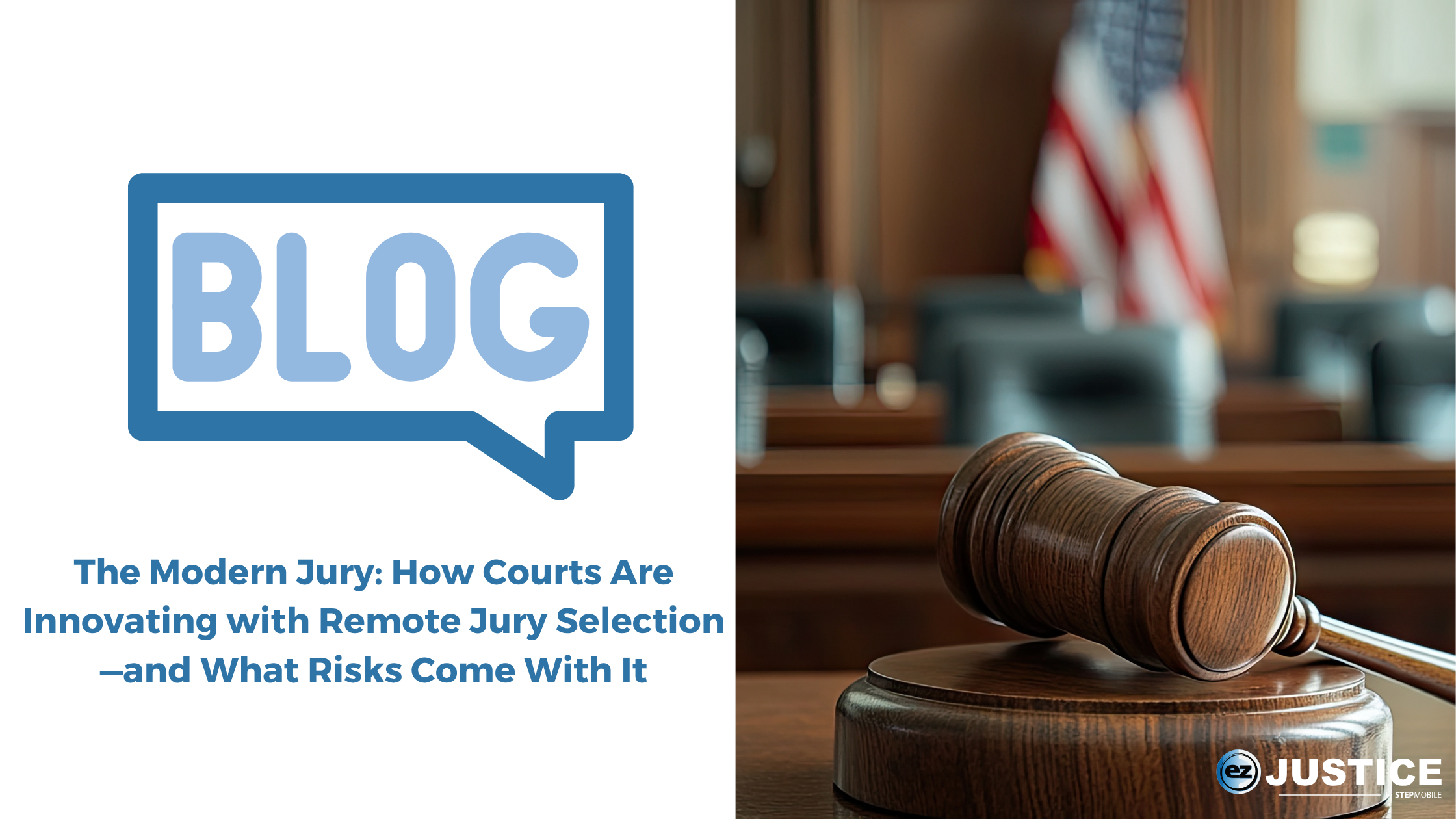2 min read
The Modern Jury: How Courts Are Innovating with Remote Jury Selection—and What Risks Come With It
Lauren Thompson : Oct 15, 2025 3:12:31 PM

The jury process has always been one of the most visible reflections of the justice system. For many citizens, it’s their first direct interaction with the courts—a process that can shape public trust for years to come.
As technology continues to transform nearly every aspect of civic life, courts are also evolving. Many are adopting remote jury selection, digital questionnaires, and virtual communication tools to improve accessibility, streamline operations, and make better use of limited staff resources.
But while these innovations hold tremendous promise, they also bring new responsibilities—and a need for thoughtful implementation.
Why Courts Are Moving Toward Remote Jury Selection
The shift toward virtual jury management accelerated during the pandemic, when courts were forced to explore digital solutions to keep proceedings moving. What began as a temporary necessity has become an ongoing opportunity to improve the juror experience and court efficiency.
Modern courts are now using technology to:
-
Streamline juror pre-screening with online questionnaires and automated imports from databases like voter registration or DMV lists.
-
Improve attendance and engagement through text and email reminders rather than mailed notices.
-
Reduce administrative workload by automating manual steps such as sorting, scheduling, and check-in.
-
Provide flexibility for jurors balancing work and family obligations, helping to broaden participation and improve diversity.
For many courts, these changes have redefined what an efficient and professional jury process looks like—one that saves staff hours while enhancing public confidence in the system’s fairness.
The Benefits—and the Risks—of Going Virtual
As with any innovation, digital jury processes come with both opportunities and risks.
1. Increased Efficiency, but Potential Access Gaps
Online tools make it easier for jurors to respond, but not every citizen has the same access to reliable internet or digital devices. Courts must ensure virtual options don’t unintentionally exclude certain populations.
2. Better Communication, but Higher Security Demands
Text and email notifications have significantly reduced no-show rates. However, the rise in digital correspondence means courts must adopt stronger cybersecurity measures to protect sensitive juror information.
3. Streamlined Administration, but New Workflows
Automating communication, payments, and reporting can save time—but only when supported by a system designed to manage these tasks efficiently. Without proper tools or training, staff may face new forms of digital overload.
How Technology Is Supporting the Future of Jury Management
The most successful courts are finding ways to balance innovation with accessibility—adopting hybrid models that use technology where it helps most while keeping the personal, human-centered aspects of jury service intact.
Modern jury management platforms are helping courts:
-
Conduct automated juror draws in seconds instead of hours.
-
Enable jurors to complete questionnaires, request excusals, and view schedules online from any device.
-
Centralize communication across text, email, and portal messaging in one secure place.
-
Generate real-time reports on attendance, payments, and demographic insights.
-
Provide secure document uploads and automated audit logs for full transparency.
These advancements allow courts to operate more efficiently and reduce the administrative burden on staff—without compromising fairness, accessibility, or security.
Building Trust Through Modernization
Modernizing the jury process isn’t just about technology—it’s about reinforcing public trust. A smooth, well-organized process signals professionalism and fairness to every juror who walks through the doors.
When jurors can easily understand the process, communicate with staff, and participate confidently, it strengthens the legitimacy of the entire court system.
A Realistic Path Forward
Not every court will adopt full remote jury selection, but nearly every court can benefit from digital improvements that make the process more efficient, secure, and transparent. From online questionnaires to automated reporting, modernization is no longer an experiment—it’s an expectation.
Jury by ezJustice represents this new era of jury management, offering the flexibility, security, and configurability courts need to adapt to changing times. With customizable features, mobile access, and end-to-end reporting, it’s built to enhance your process—not replace it.
